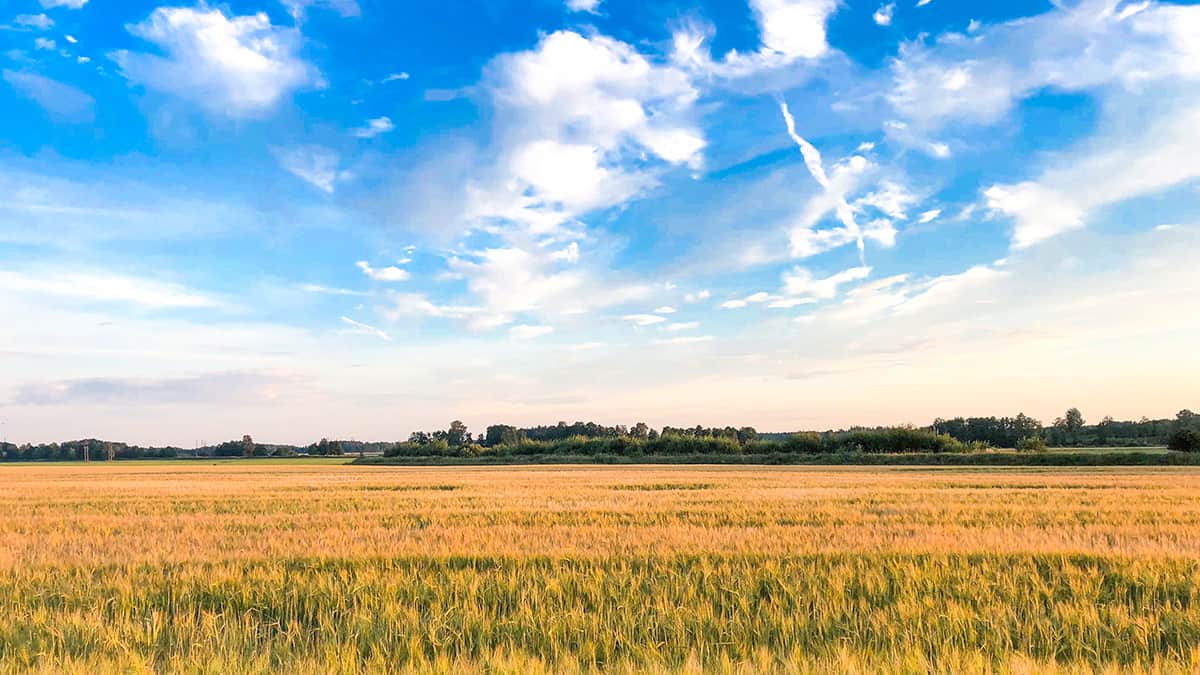Is it a good idea to refinance your farm?
Farm refinance interest rates are coming back down – should you refinance? Like everything in life, the answer isn’t always simple. Most experts recommend refinancing your farm if you can save at least 0.5% on your interest rate. But refinancing isn’t free – you should save enough money to offset the fees (and hold onto the farm long enough to recoup them).
Below, we’ll tackle the basics of the farm refinancing market, what you should look out for, and how to be best prepared to go through with the transaction.
How do I determine if I’m a good candidate for farm refinancing?
Given low rates, landowners can expect to save thousands on refinancing their current mortgages. However, a farm refinance is not for everyone.
If you expect to sell your farm within the next two years, refinancing may not be a healthy option. You likely won’t recoup the costs by the time you sell. Make sure to calculate your breakeven (a handy calculator will help you do so) to see what’s most worthwhile for you.
Generally speaking, a farm refinance makes sense for you if you’re going to be saving on your monthly payments and can accelerate paying off your mortgage. This can happen through any of the following factors:
- Interest rates dip at least 0.5% past what you signed
- Your credit score has increased, unlocking new rates
- You have the opportunity to refi into a shorter-term mortgage while keeping your monthly payments relatively low
- You have the opportunity to switch from a variable rate to fixed rate (dependent on how you view market volatility)
- You can tap into your farm’s equity for extra cash (more on that later)
If any of the above factors are at play, it could be worth checking your refi options.
What are my farm refinancing options?
Most refis are rate-and-terms, meaning your current mortgage would be replaced with another loan with an amended interest rate or loan terms. The other option is a cash-out refinance, where you can borrow more money than is necessary to pay off your farm. You can use the extra cash to pay off existing debt, help purchase a new farm, or to make any major purchase in your personal life.
What will I need to be ready with?
It takes time to get ready for the refi process! At the minimum, be prepared to provide:
- Your credit score and history: Make sure you have no surprises when your lender pulls your credit report. Seeing your credit score and history before choosing a lender can help you determine a fair rate and ensure no errors. You can request a free credit report annually here.
- Financial documents: Have your tax returns, pay stubs, bank statements, and sources of other income in hand as you prepare to speak with your lender. We recommend at least two years to get started.
- Equity in your farm: Calculating your farm’s equity can ensure you receive the best rates and loan terms. It’s simple: subtract what you still owe on your farm and any existing liens from the farm’s estimated value. If you need help calculating your farm’s value (before an appraisal is done), give us a call and speak with a team member.
- Seek out an appraisal or work with your lender to book one: An appraisal will likely need to be conducted for the bank to confirm the value of your farmland. If an appraisal has been done recently on your land, a lender may just use that instead. We can help you with this process – contact us to schedule an appraisal today.
- Cash to pay any fees: Fees can be anywhere from 2 – 6% of your loan’s value. The fees could include title, appraisal, attorney’s fees, application and origination fees, and a credit check. Some loan options allow for you to finance the fees (so you would pay them off in monthly installments, along with your mortgage). This could be more expensive, so make sure to calculate which option makes the most sense for you.
How does refinancing your farm impact my credit score?
Unfortunately, farm refinancing will require a lender to perform a hard credit check.
The ultimate effect of a refi on your credit is a bit of a guess. The credit check will affect your FICO score for one year and be displayed on your report for two – usually, the loss from one hard credit check is not too substantial. But because your refinancing is likely taking out a longer-term loan (let’s say a 30-year mortgage) with a shorter-term loan (15-year, for example), the overall length of your credit history decreases, which improves your credit score slightly.
What to be aware of
Bigger ramifications on your credit score can occur from missing a payment on your existing mortgage while setting up your new loan. Be sure to over-communicate with any loan officer and have all your paperwork so you’re on top of all your payments.
When you’re certain you’re moving ahead with a refi, try to limit other major purchases (car, home, additional land), as the frequent credit checks will further harm your score. And if you’re shopping around for rates (you should!), try to complete all credit checks within 45 days, as they would be treated as just one hard check on your score.
If you’re engaging in a cash-out refinancing, the additional debt could hamper your score. If you’re tapping into your farm’s equity in order to pay off extra debt, that could actually improve your credit.
What is a cash-out refinancing?
That brings us to a cash-out refinancing. Let’s say you can refinance your mortgage to $500,000, but could use an extra $50,000 for a home renovation. Assuming your farm is worth at least $550,000, you can borrow against your equity in your farm to take out that $50,000 in debt. Since this increases your overall debt, it can negatively impact your score. However, if the rate is attractive and you’re using the $50,000 to increase equity in another one of your assets (in this case, your home) or paying off credit card or medical debt, the cash-out refi can be really attractive.
The bottom line is, only you know what is best for your financial health and your family’s goals. There are pros and cons to any decision – but be sure AFF is there to help you every step of the way.


